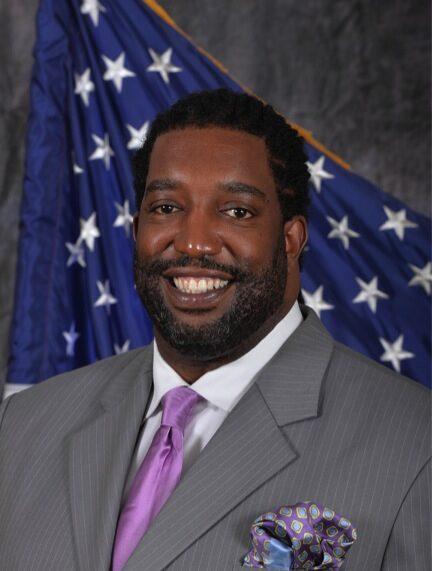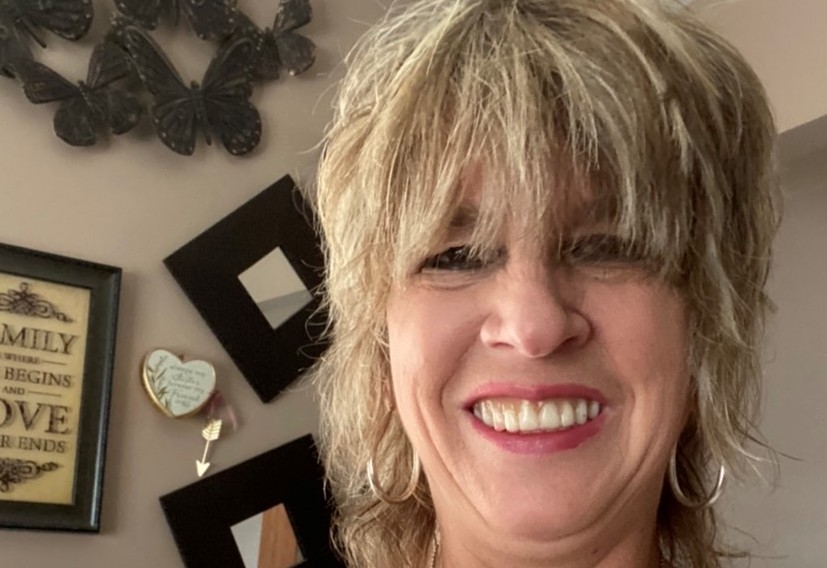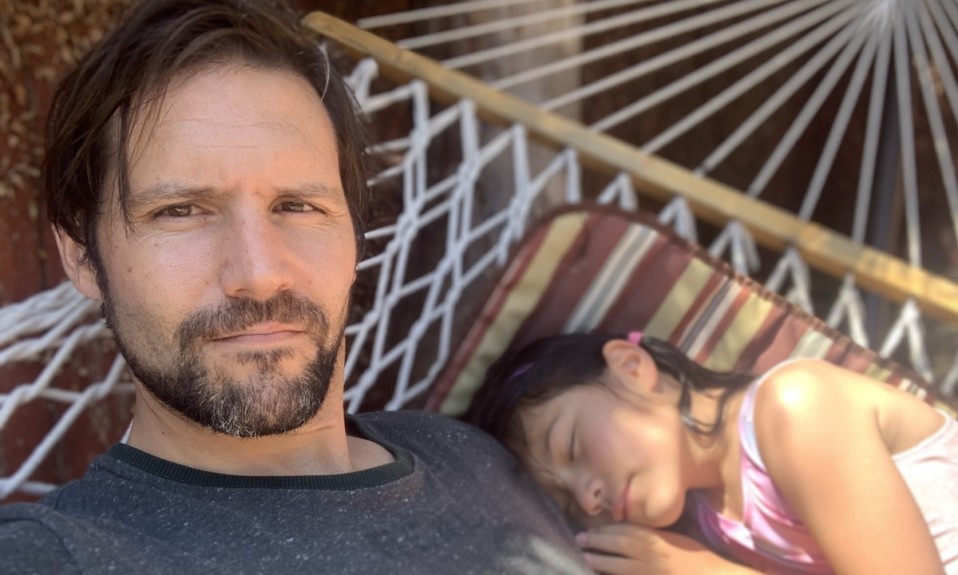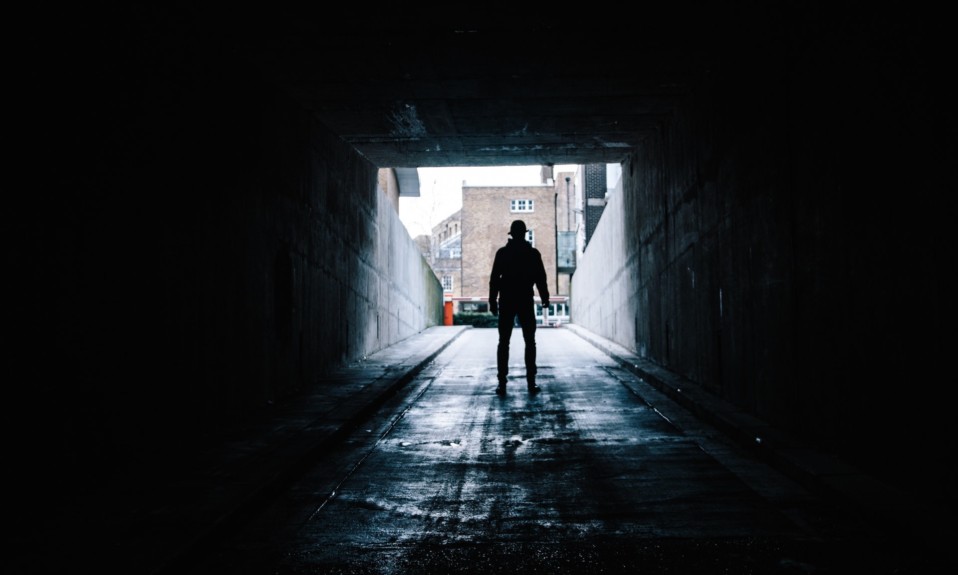By Andre Johnson
October 13, 2020This was reprinted with permission from a powerful series called Addiction Professionals in the Pandemic, a TreatmentMagazine.com go-to blog about addiction, treatment and recovery: Recovery Review.
My name is Andre Johnson. I’m a person in long-term recovery. And what that means is, I have not used drugs or alcohol in over 32 years. My sobriety date is July 13th, 1988. I am a tax-paying citizen and very intentional about my recovery and helping others. If it was not for recovery, I wouldn’t be able to be a productive member of society, I would not be able to be an active, present father to my 22-year-old daughter, and I certainly wouldn’t be able to be a husband to my wife. And by the way, we are newlyweds, we got married July 27, 2020.
What do you do professionally?
Professionally, I’m the president, chief executive officer of the Detroit Recovery Project (DRP), an organization that I founded the year of 2001. We are a peer-led, peer-ran and peer-driven organization that operates in the city of Detroit. We have two large recovery centers, one on the east side, and one on the west side of Detroit, that are created and designed to help people sustain long term recovery, and also provide recovery support services, meeting clients wherever they are. It’s a client-centered approach–we meet the clients where they are. And people come to us in many different phases. Some people come to us interested in obtaining employment, obtaining a higher education, or reintegrating back with their families, reintegrating back with their loved ones, seeking out a supportive network of people in recovery that share the lived experience or just the need for tools to help them to stay drug and alcohol-free, including staying criminal free. And so these settings and environments were created and developed by individuals that are in long-term recovery……predominantly recovery-ran, recovery-oriented, to really meet the needs of people to change the trajectory of their lives.

You’ve been with DRP since 2001, tell us more about your professional experience in the area of addiction
My recovery road has been extremely interesting. When I first got drug-free in 1988, I actually ended up becoming employed with SHAR House. It’s a residential program where I was once a patient. Shortly after getting clean there, I realized that I wanted to work in the field of addiction. I was really, really struck by the therapists who really empowered not only me, but empowered many other people to want to live a drug and alcohol-free lifestyle. I guess, in a way, I was baptized professionally… when you look at my colorful past. I realized early on that I didn’t wanna do any other work. This was the work that I was interested in. This was the work that made my heartbeat. This was the work that I found my purpose and meaning in life. And, I would like to think that I even got good at it, and learned a lot professionally from my late mentor the Executive Director Mr. Alan Bray.
So I worked at SHAR House as a monitor. Back in the late ’80s, you can take a state exam, there was a state exam called Fundamentals of Alcohol Drug Abuse Program (FAODP) and when you pass that test, you feel like you just completed a doctoral degree! But I remember getting that certificate and learning more about the academic perspective of addiction. Enabling me to integrate my personal experience and education to being a well rounded professional.
Later, after six years of sobriety I ended up going to college. I did attend Wayne County Community College. I got clean, at 18. It was unprecedented at that time. I was the youngest person in a rehab that housed close to 200 people. Everybody looked at me as their kid, their nephew, or their son. The average age of people in treatment at the time was 40 years old. So I was able to be around a lot of people who had a lot of experiences. I like to say, I had a lot of wisdom poured upon me from the participants who were in the program, but also my therapists.
Let me back up, prior to entering SHAR House, I was in a program called Hegira Alcohol Drug Treatment Center in Westland, Michigan. This program was based out of the old Eloise psychiatric hospital Detroit, I was in that program for two weeks. My probation officer personally transported me to that program. I had entered in his office on a Monday, just a day like this, a nice sunny day in July, and I was coming off a really, really tough bad weekend, and I had been a fugitive from the facility that I was in. And my addiction had basically helped me to see that I needed help. I hit a rock bottom at 18. And I remember entering his office and saying, ” Mr. Hooks I need help,” and I just started crying. I said, “I need help bad.” And I remember that Friday before that Monday I had walked like five miles in Detroit distressed and depressed contemplating suicide.
I just cried out, “God, I need help.” Most people in recovery can relate to you just saying, “God, I need help.” And so I got help. He personally transported me to the drug treatment center. And I had a woman who was my therapist, her name was Wanda. She was a White woman, five foot… Five feet flat. And I’m this Inner City Black kid and I’m like, “What is this?” In some communities, Blacks were taught, “Don’t trust white folks.” But if you hit the bottom hard enough, you don’t give a damn about the color of nobody’s skin. In fact, when you hit that bottom, you can even become very color blind. But this woman, this counselor, this therapist, her compassion, empathy, and genuineness inspired hope in me, she empowered me during those two weeks so much where once I got done after those two weeks, I felt like she was my Yoda and I was Luke Skywalker. The force was with me!
I spent 14 days detoxing and getting individual therapy. That was really when I can say that my recovery pivoted. She encouraged me to enter long-term treatment, and so I spent 120 days in SHAR House. That kind of time is not even heard of now a days. After spending 120 days, completing treatment on December 8, 1988, I immediately entered into a program called the Aftercare on the westside of Detroit on Maybury Grand where I resided for two years. During those two years, I was really exposed to the field. I got hired as a staff monitor, and years later after passing my FAODP, I ended up becoming a counselor for SHAR House. I eventually worked for Wolverine Human Services, and Hudson Adult Care Home.
I realized at that point, a couple of years later, I needed to pursue higher education if I was gonna really be able to grow and really challenge myself. So I was able to go to Wayne County Community College, and then I eventually transferred to a historically Black college in Atlanta, Georgia, Morehouse College, and obtained my degree in Psychology. At that time, I graduated in 1998, I remember it like it was yesterday… I had 10 years, I had a decade of recovery and sobriety, and I was feeling like I was on top of the world, and I realized that I needed to continue my education further, so I eventually got my Master’s degree.
Once I returned from Morehouse in Atlanta, I got hired for an organization called Neighborhood Service Organization. I worked there for one year and then I got hired at the Detroit Health Department and worked under the leadership of Dr. Calvin Trent, who was in charge of the City of Detroit Bureau of Substance Abuse Prevention Treatment and Recovery. That’s when I really began to understand some of the inner workings of the business from an administrative perspective, learning about block grant, learning about Medicaid dollars, and how dollars were allocated. I would sit on committees that allocated $35 million throughout the City of Detroit provider network. I also had a responsibility to act as a project manager, and my job was to audit all the treatment programs in Detroit. I conducted financial audits and programmatic audits, so that gave me a lot of insight to the business side of the addiction field.
Then that got somewhat boring, just ’cause I was really pushing a lot of paperwork. So, Dr. Trent said, “Hey, Andre, I would like for you to be the Director of The Partnership for A Drug-Free Detroit Coalition.” That was a very large, very influential, coalition that was founded by the Detroit City councilwoman, Alberta Tinsley-Talabi. In that coalition, we had a faith-based component, we had a recovery component, which was my responsibility to build from scratch. In fact, Dr. Trent even said, “Hey, Andre, here is $100,000, start-up money. And I want you to create a recovery program.” And so just having all those experiences kind of morphed into what we know today as the Detroit Recovery Project, which obviously we grew, we evolved, we’re still growing. And I would like to say, we’re making a difference in the City of Detroit. The late Dr. Calvin Trent mentored me and was life a father that I never had may his Rest In Peace!
Professionally, what are you most proud of?
I’m excited about a lot of stuff. One is, I was fortunate to receive an award from President Barack Obama called the “Champion of Change” Award during his last days in the office. I received an award from our national advocacy organization Faces and Voices of Recovery, the “Vernon Johnson Award”. I would say we don’t do our work for recognition but be recognizing from peers across the country has definitely inspired me to continue the work. But professionally, I am humbled and honored to be able to say that I created a impactful organization that has touched the lives of thousands throughout metro Detroit and now employs over 50 employees.
I’m proud of the creation and development of that organization, also being instrumental in making sure that recovery support services are now a billable service in the State of Michigan. 20 years ago, it was not a billable service. And so our organization was very instrumental in partnering with the state of Michigan garnering the support of Ms. Deborah Hollis and Mr. Larry Scott’s [Director of Michigan’s Office of Recovery Oriented Systems of Care]. And they really listen. We partnered with Wayne County. We’ve partnered with all the governmental funding agencies to be able to bill for recovery support services. That’s a big thing in our whole state, as I’m sure you would know.
Now we’re able to now sustain a new innovative approach, through lived experience. I mean lived experience has a lot of value. The powers that be recognize that lived experience does have value, and it was important to support financially.
What keeps you working in this field?
The thing that keeps me are the people. When you see people who come to you at rock bottom, trying to figure out what’s the next step, and you see them one, two, three, four, or five years later, and they’re married and they have beautiful relationships with their children, they are homeowners, they have positive career track records, and they are staying sober. So being an active member of the 12-step program, we have a saying, and that saying is, “We can only keep what we have by giving it away.” [chuckle] So that’s one of the things that motivates me. My predecessors, the mentors I’ve had in my life, these were men and women, who were very, very passionate, compassionate people, that understood the importance of working in an inner city like Detroit, where we kind of see the downtrodden, where we see the person at a bottom… that hit a bottom, below the bottom, and to see those people succumb to the obstacles. We see and help individuals tap into their inner resiliency. Witnessing people who have overcome trauma, the hardships in life. And to see people living a drug-free, criminal-free, productive lifestyle is what motivates me to want to continue to work in this field. I can never see enough of that.
Knowing that I was once on the other side of the tracks, and not only that, knowing that I’ve lost family members to drug addiction. When I think about my mother, Sandra Johnson, who died of an overdose on 9/11/2004, of an oxycontin overdose. We’re talking about a registered nurse by trade. She retired from the Michigan Department of Corrections, but prior to her retirement, she was involved in a serious auto accident, which resulted in a very serious leg injury. That leg injury resulted in her abusing oxycontin–we’re talking about a woman who never used any drugs or alcohol when I grew up.
So, to see and to live through that, I realized and recognized the importance of having people like you and me, who have some “skin” in the game, and have some experience and knowledge. I think this field is continuously growing and continuously evolving. And, I think it’s important that somebody like me continues to stay engaged and be up for the challenges, so that we can continue to have influence and to create programs that are more meaningful and not necessarily focused on the financial aspect, but focusing on the quality of life for people we’re serving.
How has the pandemic affected your work?
The pandemic has affected DRP in a major way. We’ve certainly had our share of losing friends of DRP, staff of DRP, and those lives are gone.
We miss the voices, it’s a grief and a loss experience that I think me and many of our staff have experienced or are experiencing. And again being in an inner city, we have a saying, “When the state of Michigan gets a cold, Detroit gets the “flu.”
It’s really bad. Relapse rates have increased because of the pandemic and then as you know, recovery, the whole recovery model is built on a social support system. It’s built on embracing each other. It’s built on hugging each other. It’s built on loving each other. That’s all BC (Before COVID). Now everything has changed. Now we’re encouraged to wear masks and keep six feet distance from individuals. We’re encouraged to provide services via telehealth. This is non-contact approach. And telehealth services is a benefit, the fact that we are able to access it. But I do think that the ability to really make the connections, the face-to-face connections that we have historically made with our clients, we have seen a client reduction in our organization.
But COVID is still alive and free in our community. We’re continuing to be progressive, adhere to the precautions that come along with Covid-19, and we’re ready to fight the fight. We’re ready to instill recovery and instill a new lifestyle for people who are suffering from Covid-19 or helping people who are at risk do the right thing.
What are the biggest effects you see of the pandemic on the people you serve?
So a couple of things. One is anxiety, depression, and something known as complex post-traumatic stress disorder. A lot of folks are lonely, and again, the whole recovery model has been built on having a camaraderie. Being able to go to 12-step meetings and then go out and eat lunch dinner or breakfast. Those individuals typically become your extended recovery family members, and so people who are not able to engage in those recovery-oriented activities find themselves lonely. My last count of the number of people who died in the recovery community in Detroit was 33 people. And, we’re talking about people who we were not able to grieve properly. With the funerals having no more than 5-10 people at a time, we’re not even being able to attend people’s funerals. There’s a lot going on that does have a lot of impact. And so when you have anxiety, you have depression, a lot of it is based on fear. And when you have these fears, I think as a society, whether you’re in recovery or not, people are looking to escape those feelings and those emotions. We know recovery is about embracing and leaning into those fears and embracing those emotions, because those are the very components that allow us to grow and flourish.
So we have to be able to, what I would say, find the silver lining in all of this. And sometimes it’s finding ourselves. And so if we’re finding ourselves alone, that’s an opportunity to grow. Some people look at it as a negative thing. It can have some negative consequences if you do not take action, if you don’t have someone to help you to process it. I was on the phone with a guy earlier who was crying like a baby, and he was just experiencing all this fear–the fear was stemming from whe was seven years old, he’s in school, he’s married, he just closed on a new home and life is going good. But again, I think fear is a scary place. But one of the things I learned early in recovery is it’s about having healthy fear. For me, you wanna have a healthy fear about using drugs. You wanna have a healthy fear about selling drugs. And you take that energy and you flip it in doing into something positive and concrete for yourself. And that’s when you begin to grow. Recovery is about growing, expanding, and tapping into our inner self so that we can be the best person that we can be. Tapping into our inner creativity because fear, anxiety and depression is a self-destructive path … They are all distractions. They are distractions that will take us from being the best us.
What long-term effects do you see on the field following the pandemic?
I think we’ll probably have an increasing number of telehealth services, which I’m sure we’ve already seen… I heard Zoom’s stock went up, not that I’m trying to promote Zoom, but I’m sure they’ve certainly benefited from the pandemic because of telehealth, because of the way business is now being done. Most business, as we know it, is being done via Zoom.
So I’m thinking that it’s gonna be an opportunity for us to develop and create some more innovative recovery programs to help people during this pandemic. I don’t think it’s realistic to anticipate this pandemic being over in four months. The last article I read from the Center for Disease Control indicated that we can expect some vaccinations towards the end of ’21. So that means we know we have a whole another year around this.
I think we have been creative and innovative in terms of creating support groups on Zoom. Obviously, this is innovative, and I’m very thankful that you invited me to be a part of your recovery blog because we have to get the communication out. We gotta continue to make sure that these stories are available in our communities, and we just gotta keep working together.
How are services going to have to change in response to the pandemic?
I think the only real alternative at this point is telehealth services, and developing technically savvy tools to reach the hard to reach population but I do think we have to be more creative in engaging people in some therapeutic approaches that can help them find hope in their spaces. Some of the challenges in Detroit, is some people don’t have computer literacy skills, in fact a lot of people don’t. And then a lot of people don’t have a computer, and in some cases, they don’t have internet access. So I think as this disease or this COVID-19 continues to grow, I think it’s gonna get worse for the people who are less fortunate. It’s gonna have a more dire impact on the vulnerable and disenfranchised communities, because they don’t have the access that other communities have.
If you were able to devote yourself to a fantasy project to improve treatment and recovery support, what would it be?
I would have a one-stop shop that would encompass treatment, phase one, phase two, recovery support services, and it would be a more integrated approach where we would have residential treatment, we would have outpatient treatment and then people can transition from residential treatment to recovery housing and then they can transition from residential treatment to outpatient therapy. And then while they receive an outpatient therapy, there would be an integrated approach with recovery support services. Everybody would have an outpatient therapist and they would also be assigned a recovery coach. And that program would be at least a one to two-year commitment.
If we’re gonna really make a difference and make a change in people’s lives, we have to have realistic and measureable programs that are more long-term oriented. In 28 days, you just scratched the surface. And again, working with the population in Detroit where you have people who don’t have employability skills, transportation, legal issues… all that has to be resolved and worked out, and it often takes three to four years just to find some freedom in those areas.
Probably 70% to 80% of the people we serve are men. A lot of these men have child support issues where they may owe Wayne County Third Circuit Court somewhere between $50,000 to $100,000 in child support. Not to mention their credit–FICO scores average 400 to 500 and don’t really have an understanding of what credit is. And then we’re talking about bank accounts… there’s a lot of work that needs to be done.
Another component that would be vital for me would be to make sure we have an integrated physical health component. Because now, I say people are not only not dying by the drugs, but they’re dying by the fork! A lot of people have “COVID-19 weight” now because they are emotionally eating. And so we’re gonna see an increase in comorbidity, people who have diabetes, high blood pressure, high cholesterol, etc. The healthcare system is swamped and saturated right now, so people are not getting their regular health screening, men are not getting their prostate exam, females are not getting their mammograms.
And so I would like to see a more holistic approach that helps people. So when you enter into this office, I would have a TV monitor that talks about a holistic recovery program, describing your physical health, your health and wellness and describe what you’re gonna do to retain and sustain your long-term recovery, so that you can reduce your chances of relapse. So I have a full-fledged fantasy agency in my head!













